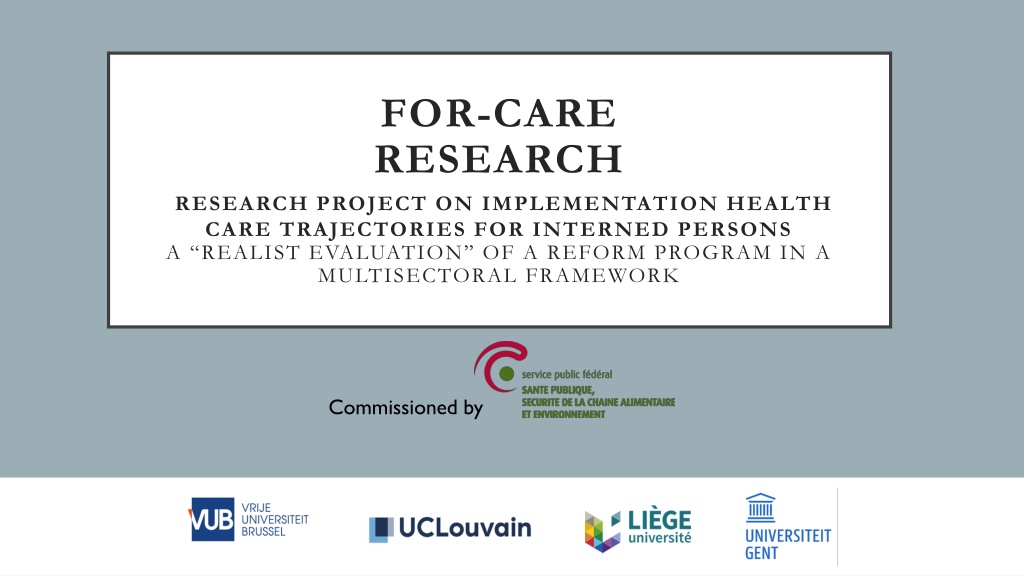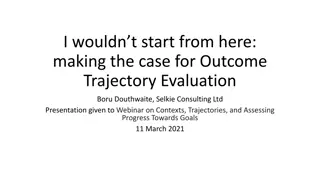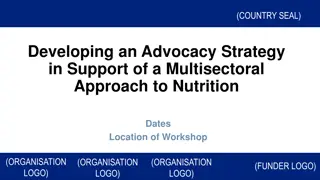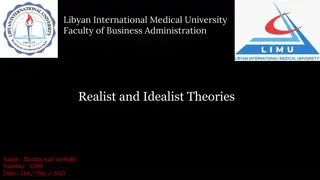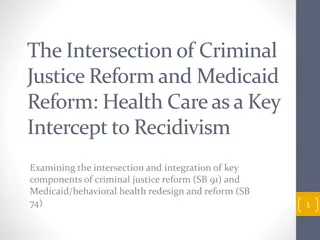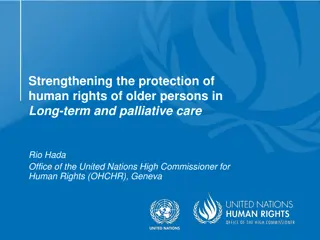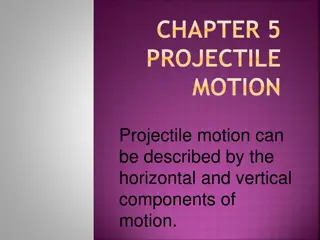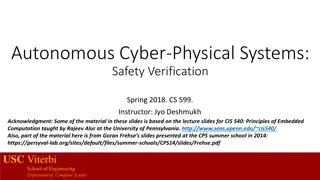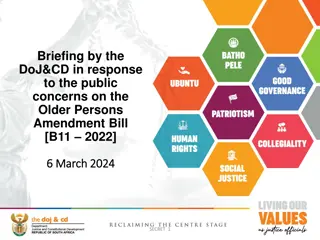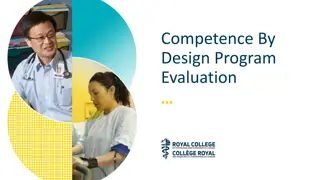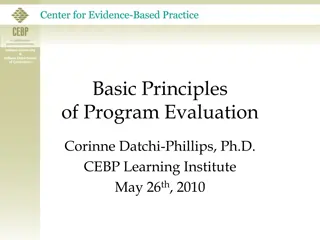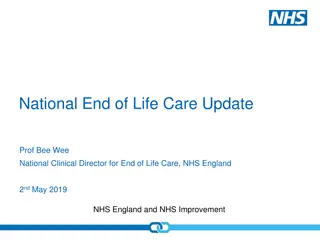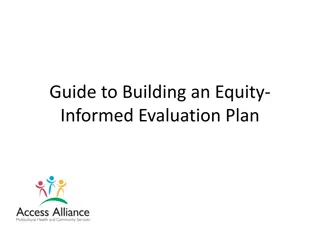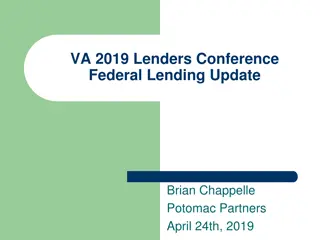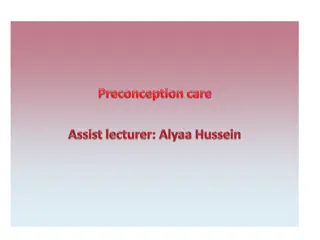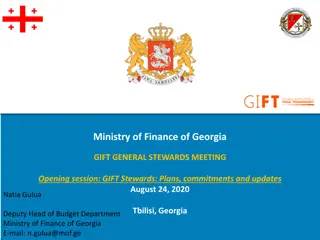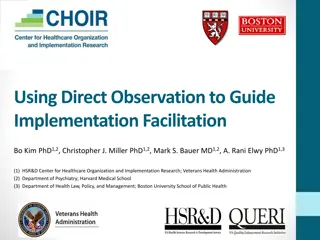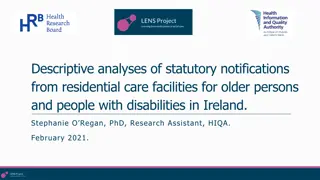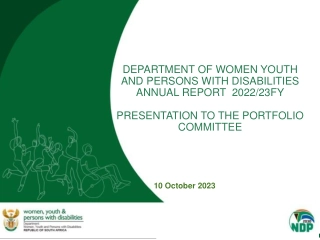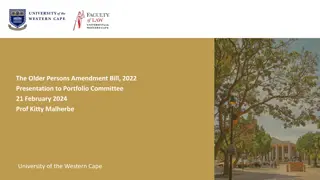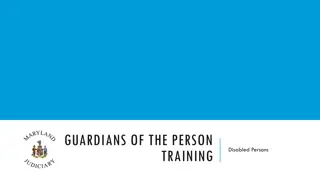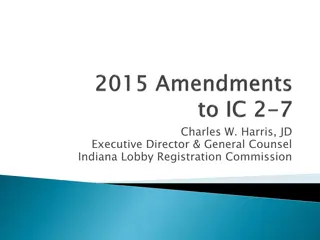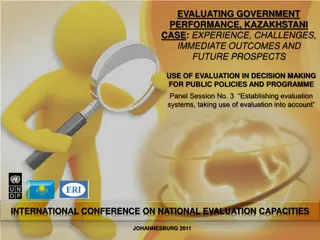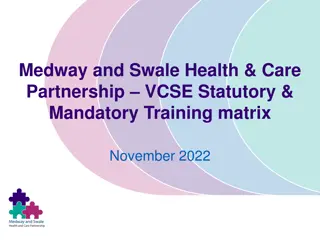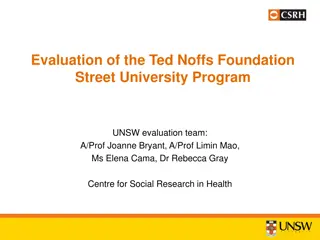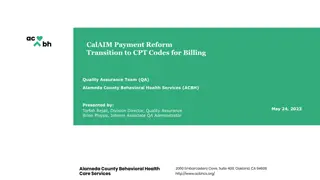Implementation of Health Care Trajectories for Interned Persons: Realist Evaluation of a Reform Program in a Multisectoral Framework
This research project focuses on evaluating the reform program for the care of Mentally Disordered Offenders (MDOs) within a context of broader mental health care reforms. The study explores governance structures, stakeholder perspectives, collaboration factors, and the experiences of MDOs and their families along forensic care trajectories. The methods involve a mix of qualitative and quantitative approaches, including interviews, focus groups, observations, and data analysis from a registration system. The project aims to understand the impact of the reform program on the care pathways and experiences of interned persons.
Download Presentation

Please find below an Image/Link to download the presentation.
The content on the website is provided AS IS for your information and personal use only. It may not be sold, licensed, or shared on other websites without obtaining consent from the author. Download presentation by click this link. If you encounter any issues during the download, it is possible that the publisher has removed the file from their server.
E N D
Presentation Transcript
FOR-CARE RESEARCH RESEARCH PROJECT ON IMPLEMENTATION HEALTH CARE TRAJECTORIES FOR INTERNED PERSONS A REALIST EVALUATION OF A REFORM PROGRAM IN A MULTISECTORAL FRAMEWORK Commissioned by
NON FINALISED FINDINGS Report of follow up period 2016-2018 Ongoing process in 2019
THE PROJECT Context of restructuration of the field of care for Mentally Disordered Offenders (MDOs) Condemnations of the Belgian state by the ECHR Reform of care for MDOs in a context of mental health care reforms For-Care research : process evaluation of reforms: Three overall aims Collaboration between organisations MDOs care trajectories and access to care facilities The experiences and role of families and informal care
RESEARCH QUESTIONS How is the reform process governed and what is the role and perspectives of key stakeholders? What factors facilitate or hamper collaboration between partners involved in MDO care trajectories? How feasible is a routine registration system on MDOs care trajectories? How do MDO security needs affect MDOs referrals between care settings? How do MDOs and their families experience the forensic care trajectories?
METHODS Literature review Combination of qualitative and quantitative methods: Interviews (policy and field actors, MDOs and MDOs families) Focus groups (policy and field actors from health and justice sectors) Observations of meetings Analysis of data retrieved from a registration system (in development)
GOVERNANCE AND INTERORGANISATIONAL COLLABORATION
GOVERNANCE STRUCTURE AND ROLES
Mandate: Vertical piloting International pressure (ECHR) Dominance of health policy perspective, together with justice Short term Priority: reducing the number of MDOs within psychiatric annexes of prisons Longer term objective and less pressure: reintegration in society Beside this, bottom-up practices and leeway for field actors need of a more precise vision Federal instances Integrative agents from health and justice sector (national and local ) Guardians of the federal program, information brokers Facilitate the policy implementation process Enhance collaboration between sectors and organisations Differences in style and profiles of coordinators Coordinators
Information sharing mechanism about guidelines from national reform rather than local governance body BUT: Differences between Courts of Appeal (!) AND: Local context and learning time Strategic committees Tool for opening up the forensic sector Not yet a tool used by all partners Boundary actor Mobile teams
COLLABORATION EXPERIENCES IN STEERING GROUPS Facilitating Collaboration is enhanced through The policy programme (financial means, coordinators, mobile teams, ) Legal framework Internal factors (trust, involvement, clear distribution of tasks and roles, ) However, hampering factors remain Sectoral logics of action (health/justice) Institutional logics Professional cultures (Ex.: professional secrecy) History of relations and collaborations in the local field Working habits (resistance to change of individual organisations, ) Timing issues, administrative heaviness Collaboration takes time Learning process
MDOS CARE TRAJECTORIES Feasibility of implementing a routine registration system and preliminary results
FEASIBILITY OF IMPLEMENTING A REGISTRATION SYSTEM Data collection: 3529 referrals in 2017 About 70 services completed the data collection on MDO Diversity of practice across court of appeal Field actors: controversies Need for coordinated registration (justice/health data) but reluctance to collect data, seen as time consuming, extra workload, usability Issue about the most appropriate scale
Response by court of appeal: Court of appealGeneral board HoNOS-Secure Differences in response rate 94 % Antwerp Bx_Fr 11% 72 % 21% High on the administrative part, low completion of HoNOS- Secure 88% Bx_Du 11% 91% Gent 32% HoNOS-Secure: When filled in, good validity and consistency Li ge 88% 43% 86% Mons 53%
MDOS CARE TRAJECTORIES MDOs referrals n = 3529 2% Mobile team Low Medium High 37% 45% 16%
MATCHING NEEDS AND SECURITY LEVELS Score Honos-S n = 1175 21,8 18,2 14,6 12,3 + 1 10,8 9 7,5 6,1 ? 4,7 2,7 - 1 1,4 0,4 Mobile teams Low Medium High
PERSPECTIVES OF MDOS AND THEIR RELATIVES
SAMPLE DETAILS MDOs (n = 23) Family members (n = 17) of 11 different families* 61 (47 - 70) Average age Average age Duration of internment Gender 43 (20 - 67) < 1 27 years Duration of internment < 1 23 years M: 18 F: 5 Low: 6 Medium: 10 High: 7 n = 15 n= 8 Family role Mothers: 8 Fathers: 5 Partner: 1 Niece/Nephew: 2 Stepfather: 1 Security level Flanders/Brusssels *in total: 6 couples participated
COMMON PERSPECTIVES OF MDOS AND FAMILY 1. No voice and lack of involvement In decision making process Family members: issue of medical confidentiality 2. Limited support and information Care trajectories They never gave me information. They opened the door, they let me go. I took the train and went home. (27 years interned) 3. Undefined duration Negative: Long and insecure future perspectives Positive: Opportunity for personal process
Family members MDOs 1. Negative impact on family members lives 1. Long time between transitions 2. Future plans: normal life 2. Peer support: Being not alone You isolate yourself from others, you do not want to see anybody anymore. [ ] I am not afraid to tell everybody my son is in a psychiatric hospital. But that he is involved in a judicial procedure and that he is a criminal, that is something I do not talk about. (Mother, 47 years) I want to live outside, to live on my own. In an apartment, you know? (5 years interned) Re-socializing and leading a normal life in society. (12 years interned)
MDO ABOUT INVOLVEMENT OF FAMILY Translation by the researchers: Observations and facts. The family, in particular the mother, do not get any information about: - Mental health treatment - Therapy - Medication - Duration of the treatment - No information or support of the mental health practitioners, therapists, psychologist and psychiatrist (Male, 52 years)
REFLECTIONS AND RECOMMENDATIONS
Governance approach can effectively tackle complex problems, but necessity to Clarify mandate, roles and goals (towards key priorities and shared frames of working practices) Mutually adapt the justice logics and the health care logics Enhance goal-oriented working (dialogue and collective reflection) Evolve further towards action oriented steering groups (agenda, working groups, ) Collaboration between professionals is enhanced, but the field remains compartmentalized The reintegration and recovery logic needs to be enhanced Coordination with the regular mental health sector needs to be enhanced Beware: avoid creation of a niche sector for MDOs
Registration and monitoring So far, a routine registration system appears useful and globally feasible But need to evolve towards a user friendly routine registration system Modular registration system adapted to different needs Justice/health professionals needs versus policy/management needs Need to strenghten the collaboration across CoA to facilitate the harmonisation of practices
Registration and monitoring Honos-secure is appropriate to differentiate security needs Other tools (Bel-Rai, Dundrum...) are also eligible but need of coordination to avoid registration overload Overlap of security needs between groups in low and middle security settings and mobile teams. Need to further clarify their respective roles in terms of security needs
Suggestions to involve MDO (experience expert) and families Actively involve - give voice - inform Shared partnership between mental health practitioners and family members Provide peer and family support (e.g., organizing activities for family members, make it possible that families can meet, ) Reduce stigma Ex expert/MDO : communicate - provide perspective
UNIVERSITE DE LIEGE Centre de Recherches et d Interventions Sociologiques (CRIS) UNIVERSITEIT GENT VRJIE UNIVERSITEIT BRUSSEL Organisation, Policy and Social inequalities in Health Care (OPIH) UNIVERSITE CATHOLIQUE DE LOUVAIN Institut de Recherche Sant et Soci t (IRSS) Institute for International Research on Criminal Policy (IRCP)/ Department of Special Needs Education Prof. Dr. F. Schoenaers Coralie Darcis Prof. Dr. F. Vander Laenen Prof. Dr. W. Vanderplasschen Dr. A. Mertens Dr. S. Rowaert Prof. Dr. M. Leys Dr. P. Nicaise Delphine Bourmorck CONTACT : coralie.darcis@uliege.be +32 (0)4 366 31 12 CONTACT: CONTACT : mark.leys@vub.be +32 (0)2 477 47 20 CONTACT : anouk.mertens@ugent.be +32 (0)9 264 97 05 delphine.bourmorck@uclouvain.be +32 (0)2 764 34 64
